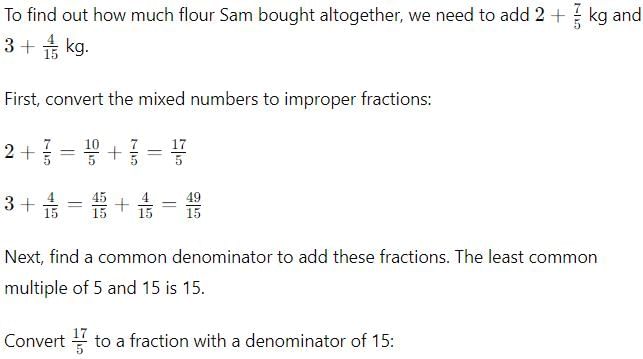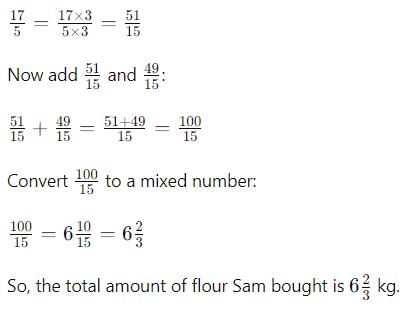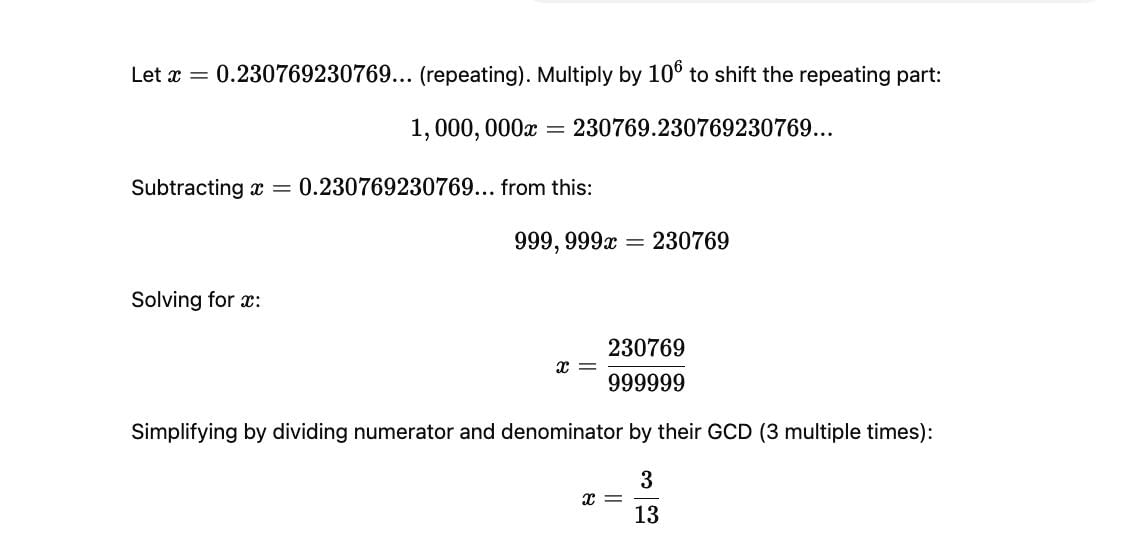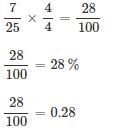Grade 9 Exam > Grade 9 Tests > Test: Irrational Numbers - Grade 9 MCQ
Test: Irrational Numbers - Grade 9 MCQ
Test Description
25 Questions MCQ Test - Test: Irrational Numbers
Test: Irrational Numbers for Grade 9 2025 is part of Grade 9 preparation. The Test: Irrational Numbers questions and answers have been prepared
according to the Grade 9 exam syllabus.The Test: Irrational Numbers MCQs are made for Grade 9 2025 Exam.
Find important definitions, questions, notes, meanings, examples, exercises, MCQs and online tests for Test: Irrational Numbers below.
Solutions of Test: Irrational Numbers questions in English are available as part of our course for Grade 9 & Test: Irrational Numbers solutions in
Hindi for Grade 9 course.
Download more important topics, notes, lectures and mock test series for Grade 9 Exam by signing up for free. Attempt Test: Irrational Numbers | 25 questions in 25 minutes | Mock test for Grade 9 preparation | Free important questions MCQ to study for Grade 9 Exam | Download free PDF with solutions
Test: Irrational Numbers - Question 1
A number is irrational if and only if its decimal representation is:
Detailed Solution for Test: Irrational Numbers - Question 1
Test: Irrational Numbers - Question 2
The product or quotient of a non-zero rational number with an irrational number is:
Detailed Solution for Test: Irrational Numbers - Question 2
Detailed Solution for Test: Irrational Numbers - Question 3
Test: Irrational Numbers - Question 4
Which of the following statement about real numbers is false ?
Detailed Solution for Test: Irrational Numbers - Question 4
Detailed Solution for Test: Irrational Numbers - Question 5
Detailed Solution for Test: Irrational Numbers - Question 6
Test: Irrational Numbers - Question 7
The decimal expansion 0.080080008000080000080000008……. is a
Detailed Solution for Test: Irrational Numbers - Question 7
Test: Irrational Numbers - Question 8
Sam bought 2+7⁄5 kg of flour in one week and 3+4⁄15 kg of flour in second week. The flour Sam bough altogether is
Detailed Solution for Test: Irrational Numbers - Question 8
Detailed Solution for Test: Irrational Numbers - Question 9
Detailed Solution for Test: Irrational Numbers - Question 10
Detailed Solution for Test: Irrational Numbers - Question 11
Test: Irrational Numbers - Question 12
The product of two numbers is -20/9. If one of the numbers is 4, find the other.
Detailed Solution for Test: Irrational Numbers - Question 12
Detailed Solution for Test: Irrational Numbers - Question 13
Detailed Solution for Test: Irrational Numbers - Question 14
Detailed Solution for Test: Irrational Numbers - Question 15
Test: Irrational Numbers - Question 16
The ratio of the circumference of a circle to the diameter of the circle is.
Detailed Solution for Test: Irrational Numbers - Question 16
Test: Irrational Numbers - Question 17
Of the given numbers
(i) √23
(ii) √256
(iii) 0.3796
(iv) 7.478478…
(v) 1.101001000100001…
Detailed Solution for Test: Irrational Numbers - Question 17
Detailed Solution for Test: Irrational Numbers - Question 18
Test: Irrational Numbers - Question 19
The decimal expansion 0.080080008000080000080000008….. is a
Detailed Solution for Test: Irrational Numbers - Question 19
Test: Irrational Numbers - Question 20
How many rational numbers can you find between 5 and 6?
Detailed Solution for Test: Irrational Numbers - Question 20
Detailed Solution for Test: Irrational Numbers - Question 21
Detailed Solution for Test: Irrational Numbers - Question 22
Detailed Solution for Test: Irrational Numbers - Question 23
Detailed Solution for Test: Irrational Numbers - Question 24
Detailed Solution for Test: Irrational Numbers - Question 25
Information about Test: Irrational Numbers Page
In this test you can find the Exam questions for Test: Irrational Numbers solved & explained in the simplest way possible.
Besides giving Questions and answers for Test: Irrational Numbers, EduRev gives you an ample number of Online tests for practice
Download as PDF



 involves the square roots of non-perfect squares (12, 10, and 2), which are irrational numbers.
involves the square roots of non-perfect squares (12, 10, and 2), which are irrational numbers.



















